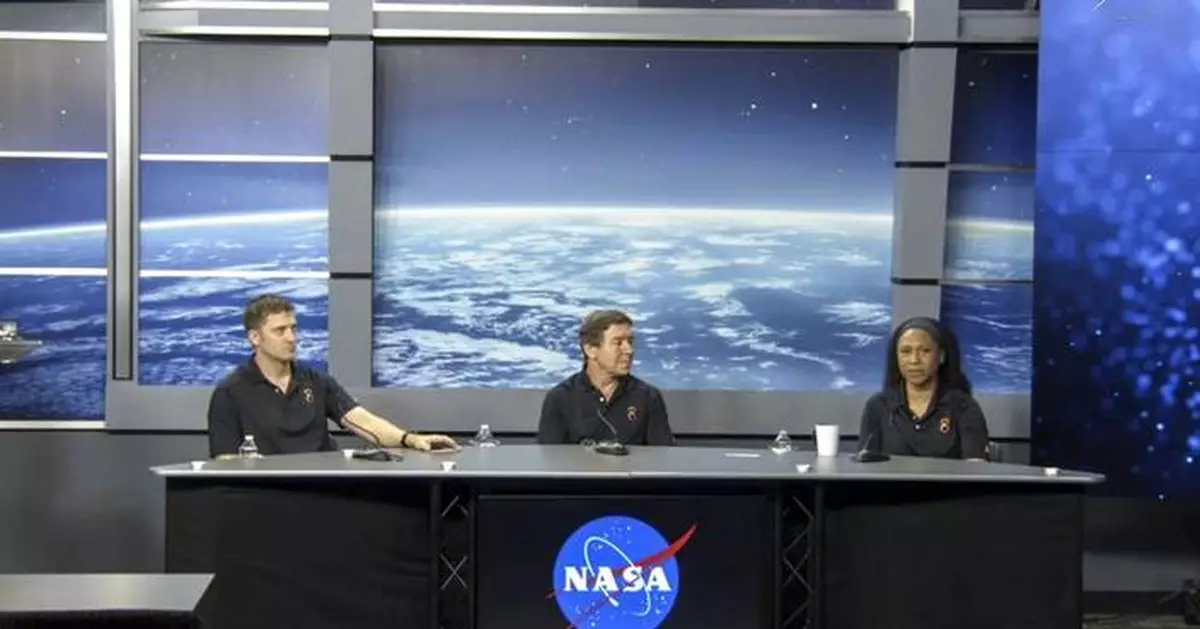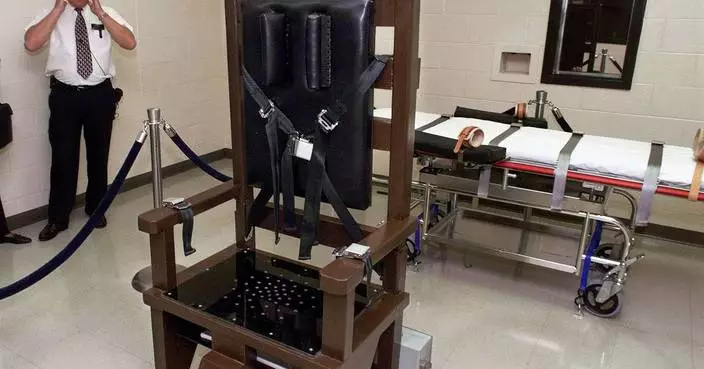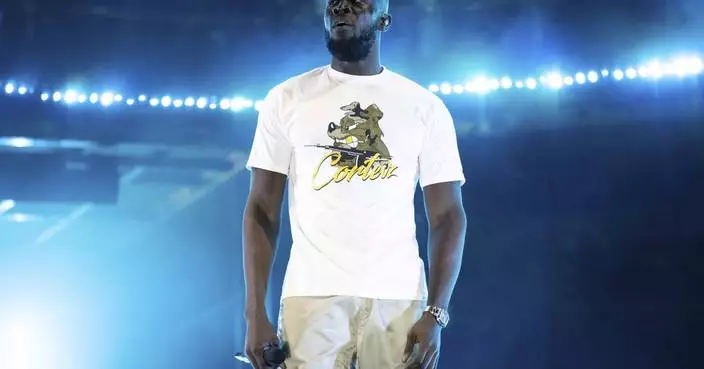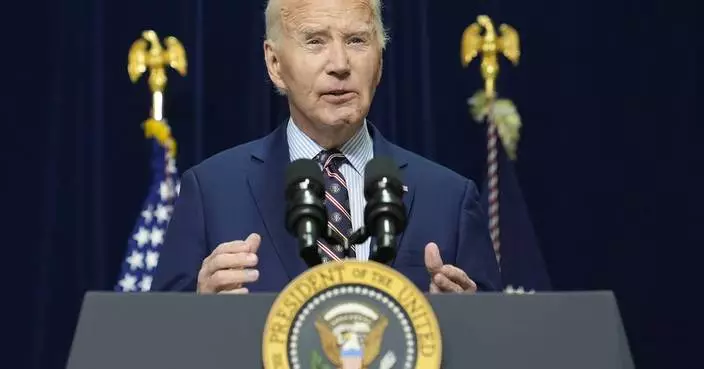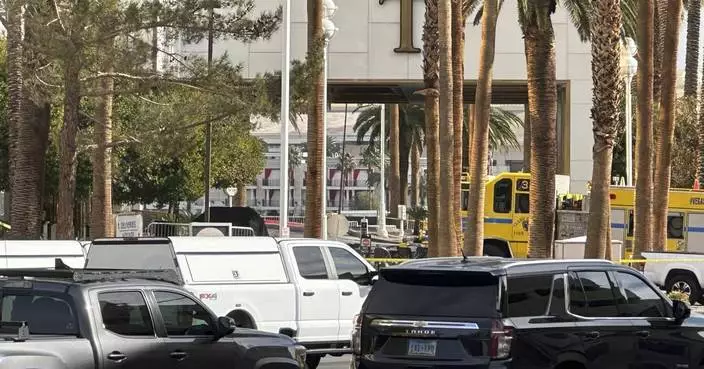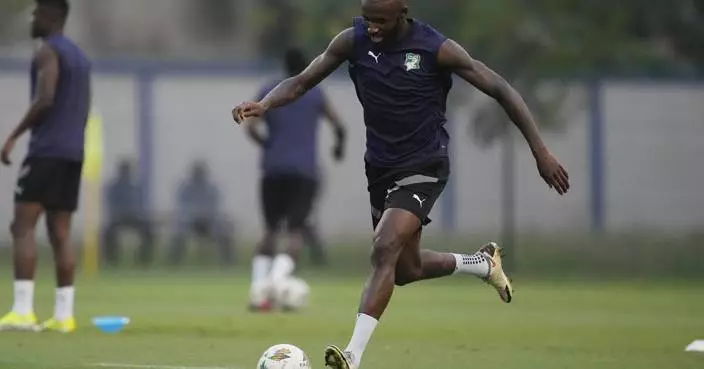CAPE CANAVERAL, Fla. (AP) — Three NASA astronauts whose prolonged space station mission ended with a trip to the hospital last month declined to say Friday which one of them was sick.
Astronauts Matthew Dominick, Michael Barratt and Jeanette Epps publicly discussed their spaceflight for the first time since returning from the International Space Station on Oct. 25. They spent nearly eight months in orbit, longer than expected because of all the trouble with Boeing’s Starliner crew capsule and rough weather, including Hurricane Milton.
Soon after their SpaceX capsule splashed down in the Gulf of Mexico off the Florida coast, the three were taken to a hospital in nearby Pensacola along with Russian cosmonaut Alexander Grebenkin, who launched with them back in March.
One of the Americans ended up spending the night there for an undisclosed “medical issue.” NASA declined to say who was hospitalized or why, citing medical privacy.
When asked at Friday’s news conference which one had been sick, the astronauts refused to comment. Barratt, a doctor who specializes in space medicine, declined to even describe the symptoms that the unidentified astronaut had.
“Spaceflight is still something we don’t fully understand. We’re finding things that we don’t expect sometimes. This was one of those times and we’re still piecing things together on this," said Barratt, the only member of the crew who had flown in space before.
Epps said everyone is different in how they respond to space -- and gravity.
“That’s the part that you can’t predict," she said, adding, "Every day is better than the day before.”
Dominick said little things like sitting comfortably in a hard chair took several days to get used to once he returned. He said he didn’t use the treadmill at all during his time in space, as part of an experiment to see what equipment might be pared on a long trip to Mars. The first time he walked was when he got out of the capsule.
The two astronauts who served as test pilots for Boeing's Starliner — Butch Wilmore and Suni Williams — will remain at the space station until February, flying back with SpaceX. Starliner returned empty in September.
The Associated Press Health and Science Department receives support from the Howard Hughes Medical Institute’s Science and Educational Media Group. The AP is solely responsible for all content.
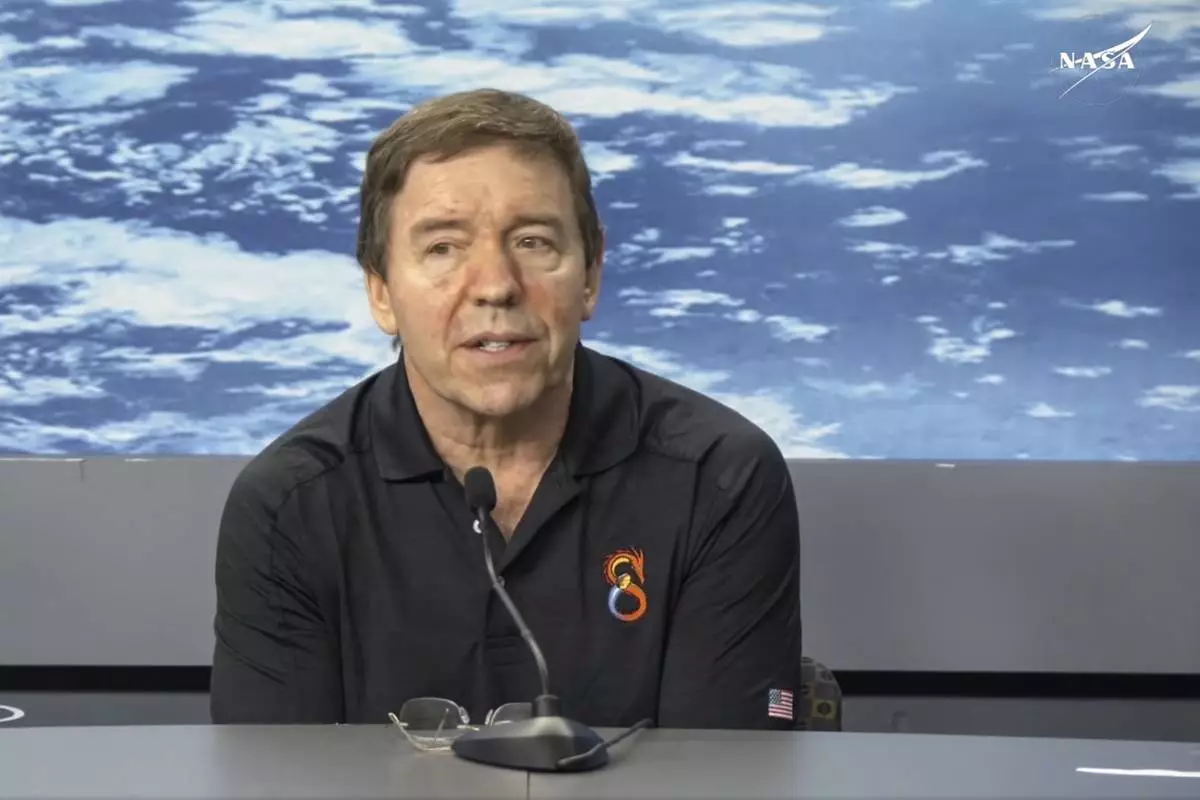
In this image from video provided by NASA, astronaut Michael Barratt speaks during a news conference at the agency’s Johnson Space Center in Houston on Friday, Nov. 8, 2024. (NASA via AP)
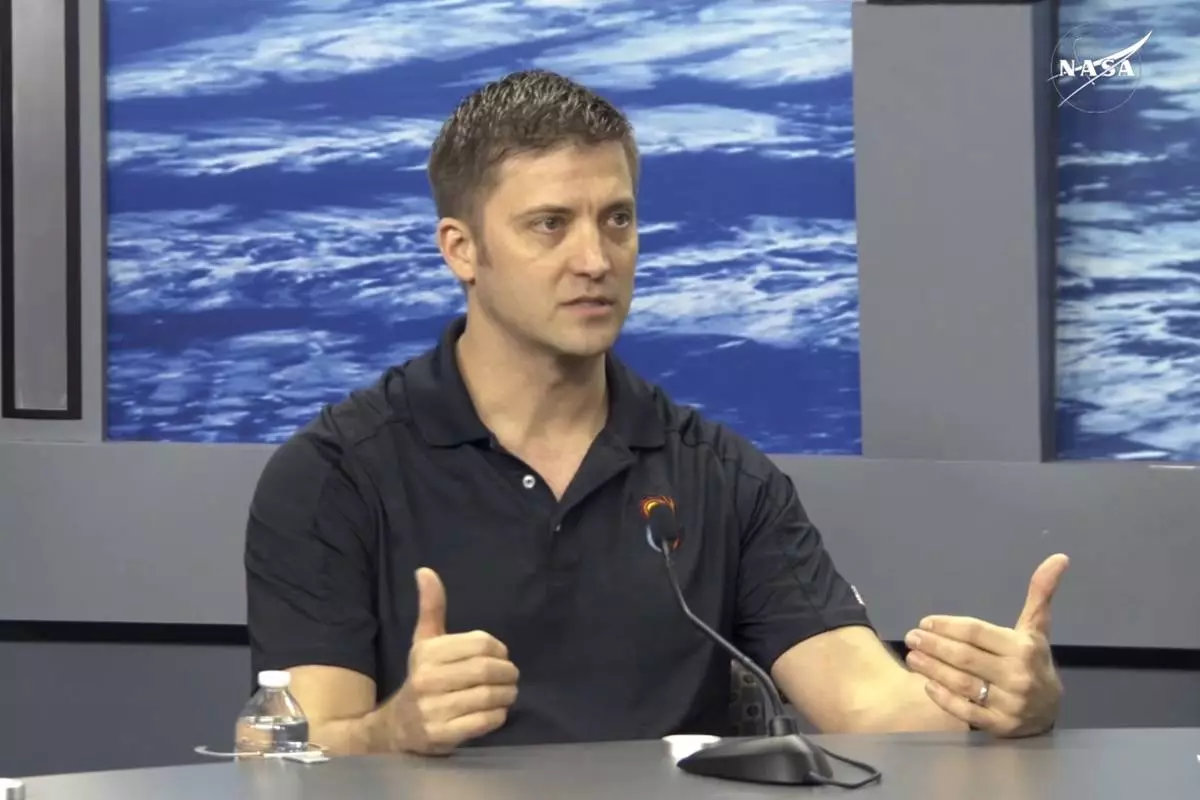
In this image from video provided by NASA, astronaut Matthew Dominick speaks during a news conference at the agency’s Johnson Space Center in Houston on Friday, Nov. 8, 2024. (NASA via AP)
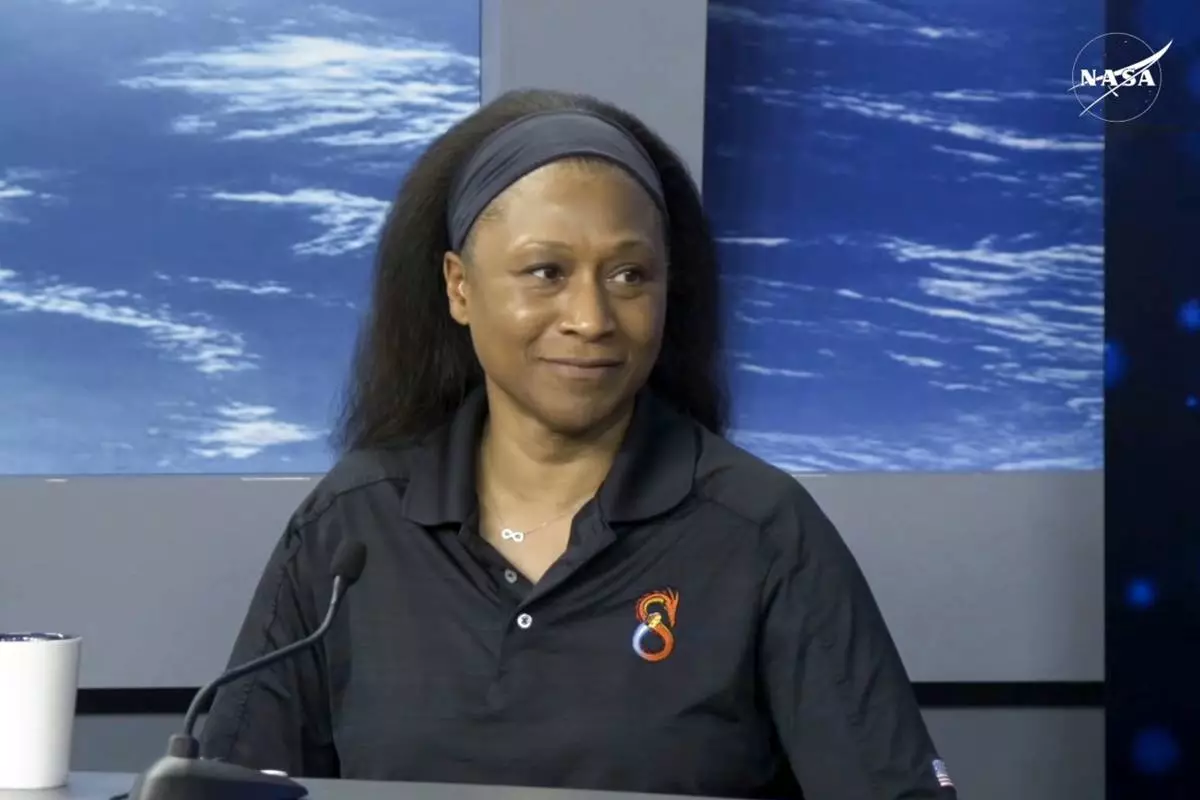
In this image from video provided by NASA, astronaut Jeanette Epps takes part in a news conference at the agency’s Johnson Space Center in Houston on Friday, Nov. 8, 2024. (NASA via AP)
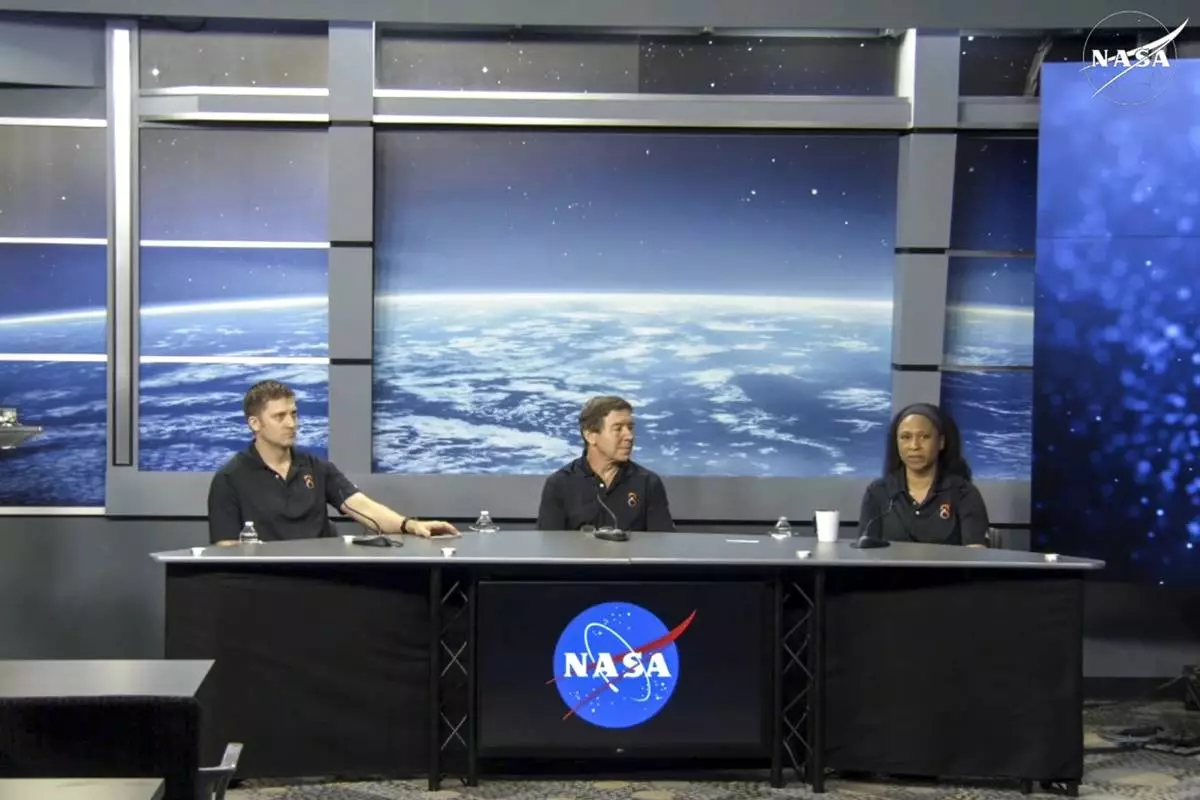
In this image from video provided by NASA, astronauts Matthew Dominick, Michael Barratt and Jeanette Epps participate in a news conference at the agency’s Johnson Space Center in Houston on Friday, Nov. 8, 2024. (NASA via AP)
NEW ORLEANS (AP) — The FBI is investigating an early Wednesday attack in which a U.S. Army veteran drove a pickup truck into a crowd of New Year’s revelers in New Orleans, killing 15 people. The driver had posted videos on social media hours before the carnage saying he was inspired by the Islamic State group and expressing a desire to kill, President Joe Biden said.
The FBI identified the driver as 42-year-old Shamsud-Din Bahar Jabbar.
Officials have not yet released the names of the people killed in the attack, but their families and friends have started sharing their stories. About 30 people were injured.
Here is the latest:
U.S. President Joe Biden said Wednesday evening the FBI was looking into whether an explosion outside a Las Vegas hotel owned by President-elect Donald Trump was connected to the New Orleans attack.
Fireworks and camp fuel canisters were found in a Tesla Cybertruck that blew up outside the Trump International Hotel early Wednesday, killing a suspect inside the vehicle.
The person who died in the explosion was an active-duty U.S. Army soldier who spent time at the base formerly known as Fort Bragg, three U.S. officials told The Associated Press on Thursday. The officials also spoke on the condition of anonymity because they were not authorized to disclose details of his service.
The truck explosion came hours after a driver, 42-year-old Shamsud-Din Bahar Jabbar, rammed a truck into a crowd in New Orleans. Jabbar, a U.S. Army veteran, also spent time at Fort Bragg, a massive Army base in North Carolina that is home to Army special forces command. An official told the AP that there is no apparent overlap in their assignments there.
The investigation so far has not shown the incidents are related, and authorities don’t think the men knew each other, two law enforcement officials said. The officials were not authorized to discuss details of the investigation publicly and spoke on condition of anonymity.
▶ Read more about the Las Vegas Cybertruck explosion
The FBI says it recovered the black banner of the Islamic State group from the truck that smashed into New Year’s partygoers. The investigation is expected to look in part at any support or inspiration that driver Shamsud-Din Jabbar may have drawn from that violent Middle East-based group or from any of at least 19 affiliated groups around the world.
Routed from its self-proclaimed caliphate in Syria and Iraq by a U.S. military-led coalition more than five years ago, IS has focused on seizing territory in the Middle East more than on staging massive al-Qaida-style attacks on the West.
But in its home territory, IS has welcomed any chance to behead Americans and other foreigners who come within its reach. The main group at peak strength claimed a handful of coordinated operations targeting the West, including a 2015 Paris plot that killed 130 people. It has had success, although abated in recent years, in inspiring people around the world who are drawn to its ideology to carry out ghastly attacks on innocent civilians.
▶ Read more about IS and what attacks it has inspired
Louisiana Governor Jeff Landry will be joined at the news conference by officials from the FBI, the Bureau of Alcohol, Tobacco, Firearms and Explosives, the U.S. Attorney’s Office, the Louisiana State Police and the New Orleans Police Department.
The conference is scheduled to begin around 10:15 a.m. CST.
“The Superdome is completely secure,” Louisiana Gov. Jeff Landry said on Fox News. “Again, the FBI continues to pour resources into the state.”
Landry said he plans to attend Thursday afternoon’s college football playoff game between the University of Georgia and the University of Notre Dame.
“We need not let fear paralyze us,” Landry added. “That’s the problem in this country. When we do that, the terrorists win.”
ROME — A telegram of condolences, addressed to Archbishop Gregory Aymond, said Francis was saddened to learn of the attack in New Orleans and was spiritually close to the city.
Francis “prays for healing and consolation of the injured and bereaved,” said the telegram, which was signed by the Vatican secretary of state, Cardinal Pietro Parolin.
Separately, Italian President Sergio Mattarella also sent condolences to President Joe Biden, whom he will see during Biden’s visit to Rome next week, saying all of Italy was mourning the loss of life.
“At this time of sorrow for the American people, I would like to reaffirm the firm resolve of the Italian Republic to oppose in the strongest terms all forms of terrorism, on the basis of those values of civilization, democracy and respect for human life that have always been shared with the United States,” he said in a statement.
The College Football Playoff quarterfinal at the Sugar Bowl between Georgia and Notre Dame was postponed by a day because of the truck attack, which unfolded about a mile away.
The game, originally scheduled for 7:45 p.m. CST at the 70,000-seat Superdome on Wednesday, was pushed back to 3 p.m. Thursday. The winner advances to the Jan. 9 Orange Bowl against Penn State.
“Public safety is paramount,” Sugar Bowl CEO Jeff Hundley said at a media briefing alongside federal, state and local officials, including Louisiana Gov. Jeff Landry and New Orleans Mayor LaToya Cantrell. “All parties all agree that it’s in the best interest of everybody and public safety that we postpone the game.”
The decision to postpone the game meant numerous traveling fans with tickets would not be able to attend. Ticket prices online plummeted in some cases to less than $25 as fans with plans to depart on Thursday tried to unload them.
The Superdome was on lockdown for security sweeps on Wednesday morning. Both teams spent most of the day in their hotels, holding meetings in ballrooms.
▶ Read more about the decision to postpone the Sugar Bowl
Officials have not yet released the names of the 15 people killed in the New Orleans New Year’s Day truck attack, but their families and friends have started sharing their stories.
Here’s a look at some of what we know:
▶ Read more about the victims of the New Orleans truck attack
Authorities say the driver of a pickup truck sped through a crowd of pedestrians gathered in New Orleans’ bustling French Quarter district early on New Year’s Day, killing at least 15 people and injuring about 30 others. The suspect was killed in a shootout with police.
The FBI is investigating the attack as an act of terrorism and said it does not believe the driver acted alone.
Wednesday’s attack unfolded on Bourbon Street, known worldwide as one of the largest destinations for New Year’s Eve parties. Large crowds had also gathered in the city ahead of the College Football Playoff quarterfinal at the Sugar Bowl, which had been scheduled for later Wednesday at the nearby Superdome. The game was postponed until Thursday afternoon following the attack.
▶ Catch up on what we know about the New Orleans truck attack
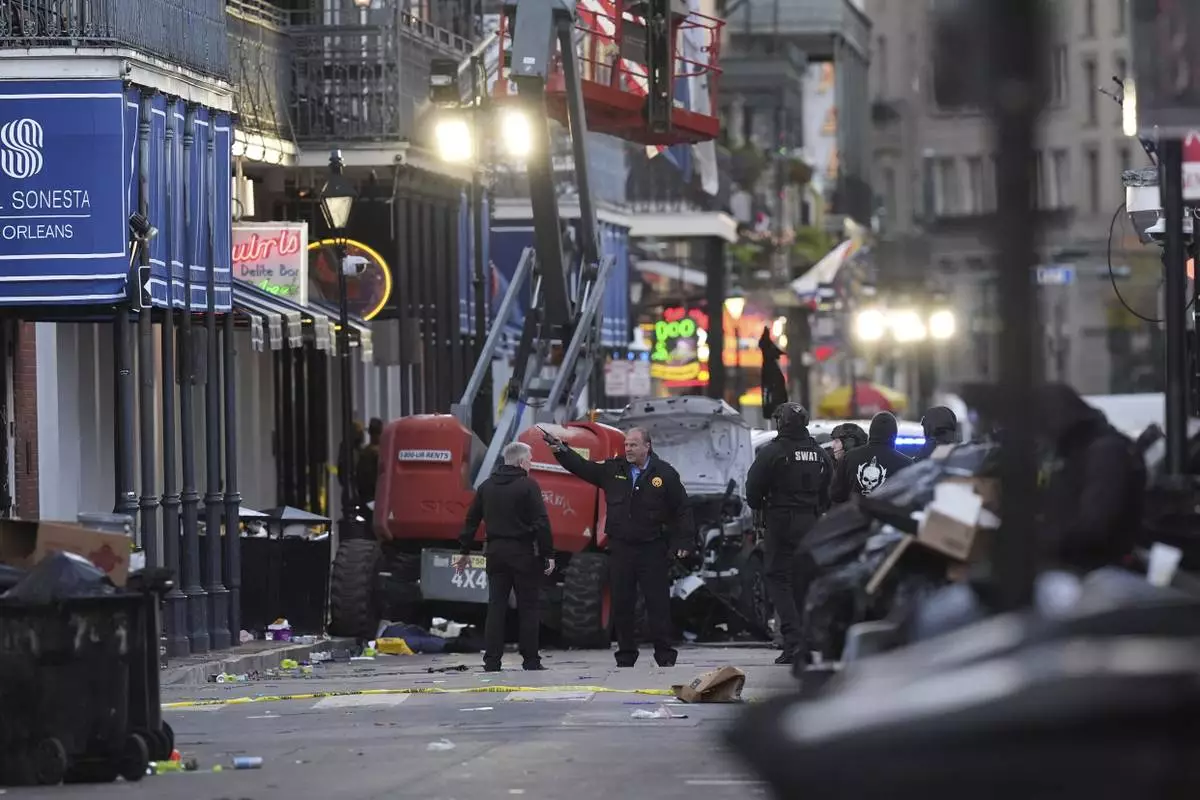
EDS NOTE: GRAPHIC CONTENT - Emergency personnel work the scene on Bourbon Street after a vehicle drove into a crowd on New Orleans' Canal and Bourbon Street, Wednesday Jan. 1, 2025. (AP Photo/Gerald Herbert)
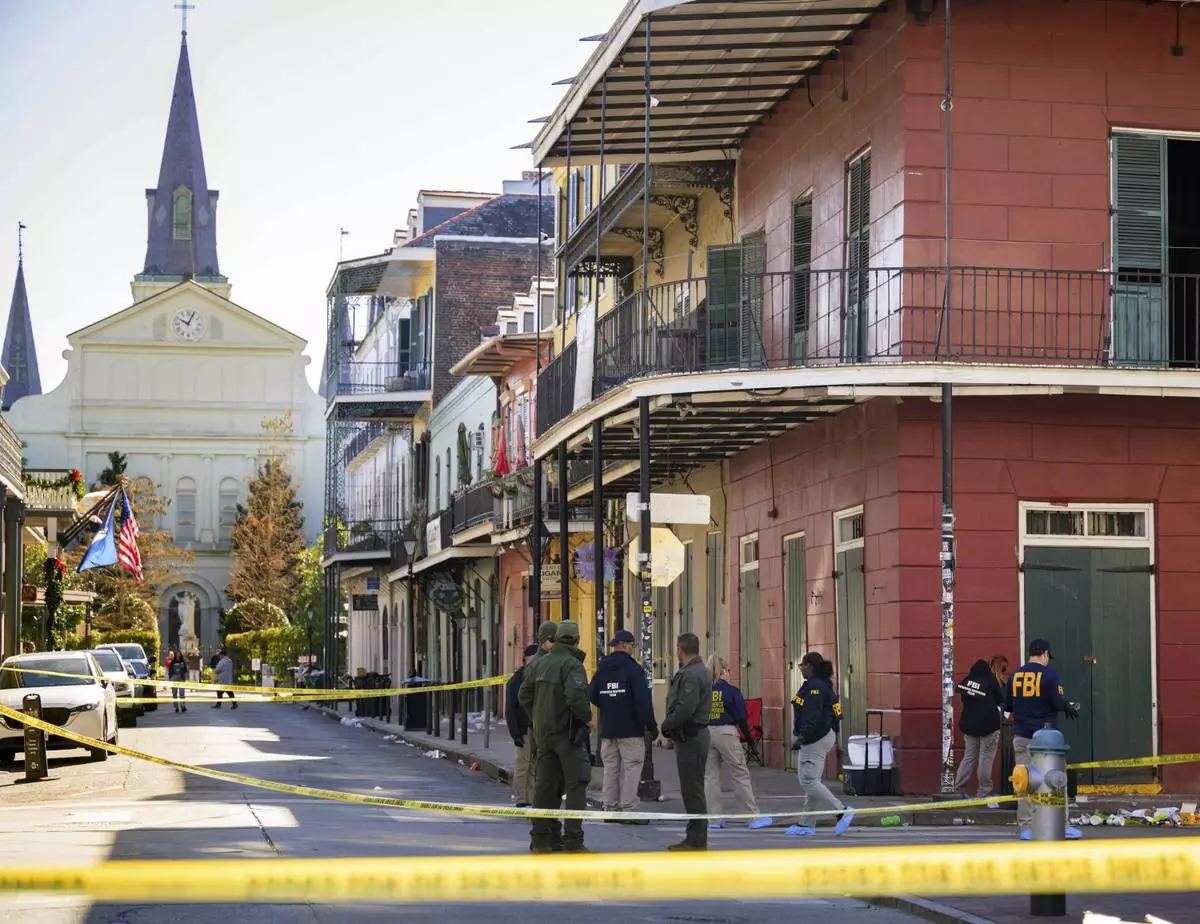
The FBI investigates the area on Orleans St and Bourbon Street by St. Louis Cathedral in the French Quarter where a suspicious package was detonated after a person drove a truck into a crowd earlier on Bourbon Street on Wednesday, Jan. 1, 2025. (AP Photo/Matthew Hinton)
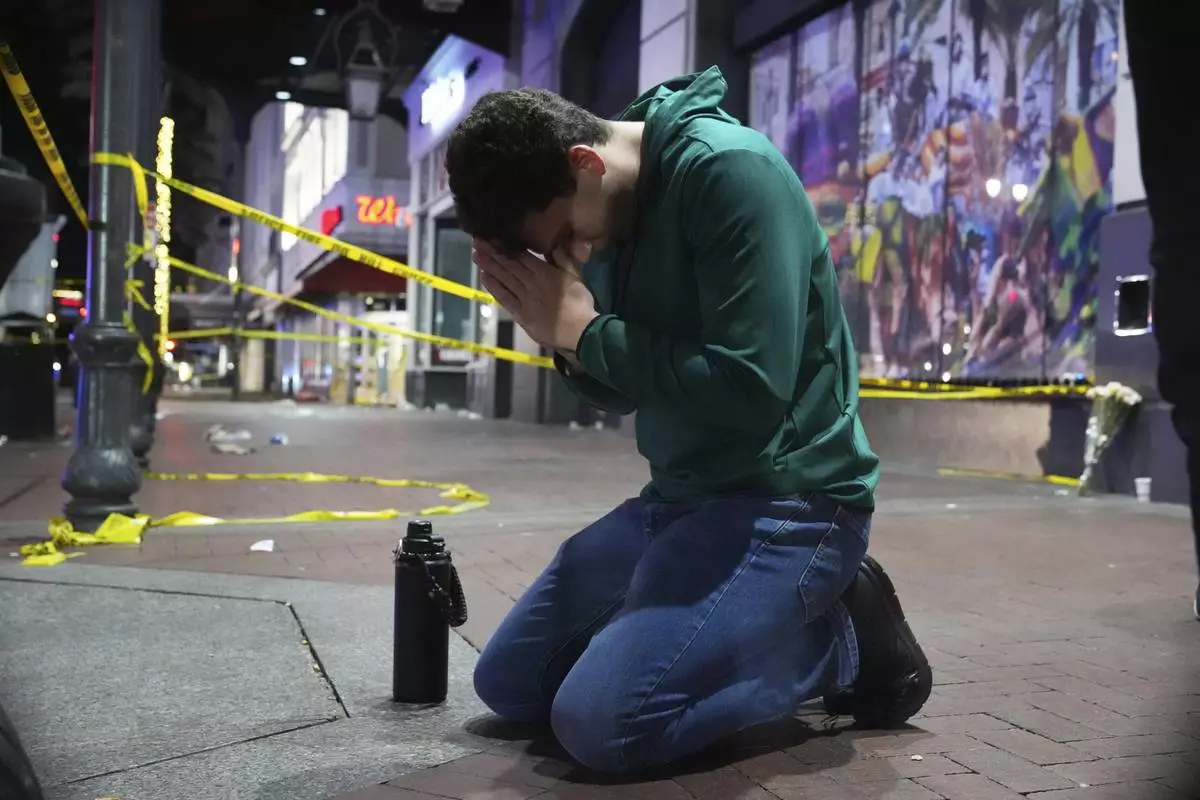
Matthias Hauswirth of New Orleans prays on the street near the scene where a vehicle drove into a crowd on New Orleans' Canal and Bourbon streets, Wednesday, Jan. 1, 2025. (AP Photo/George Walker IV)
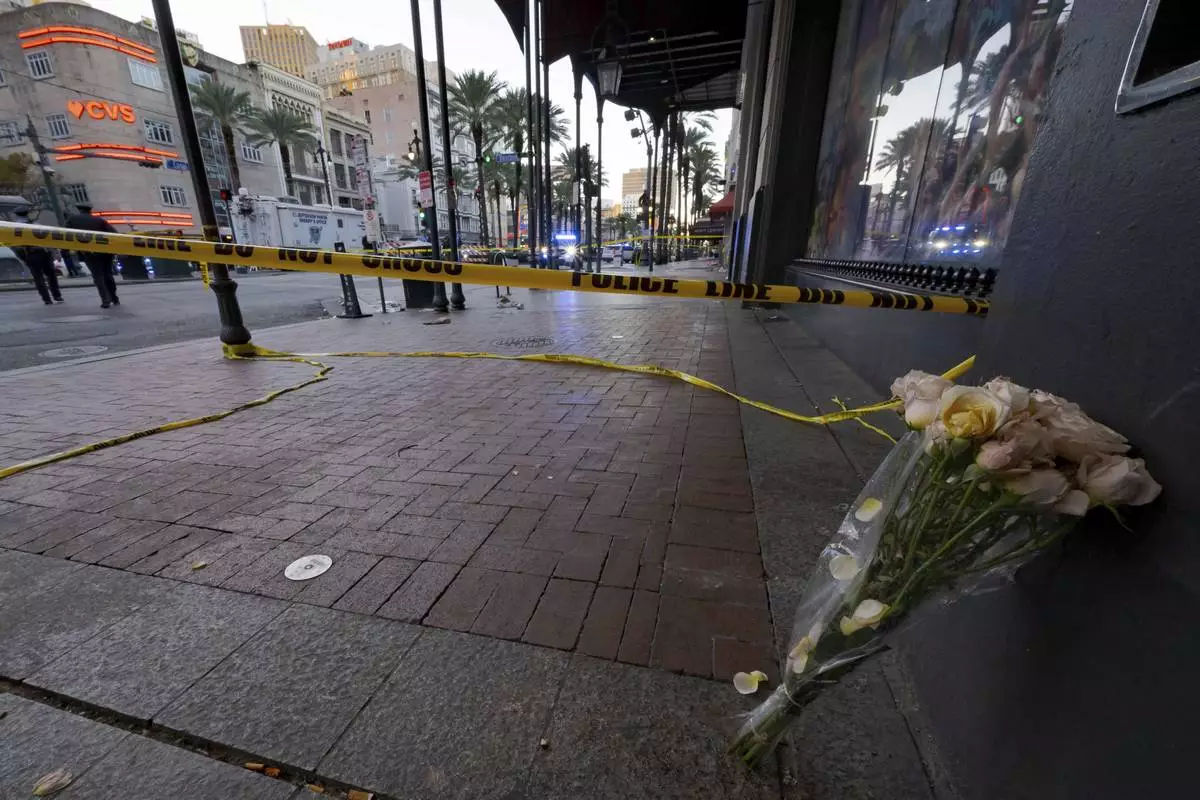
A bouquet of flowers stands at the intersection of Bourbon Street and Canal Street during the investigation after a pickup truck rammed into a crowd of revelers early on New Year's Day, Wednesday, Jan. 1, 2025, in New Orleans. (AP Photo/Matthew Hinton)
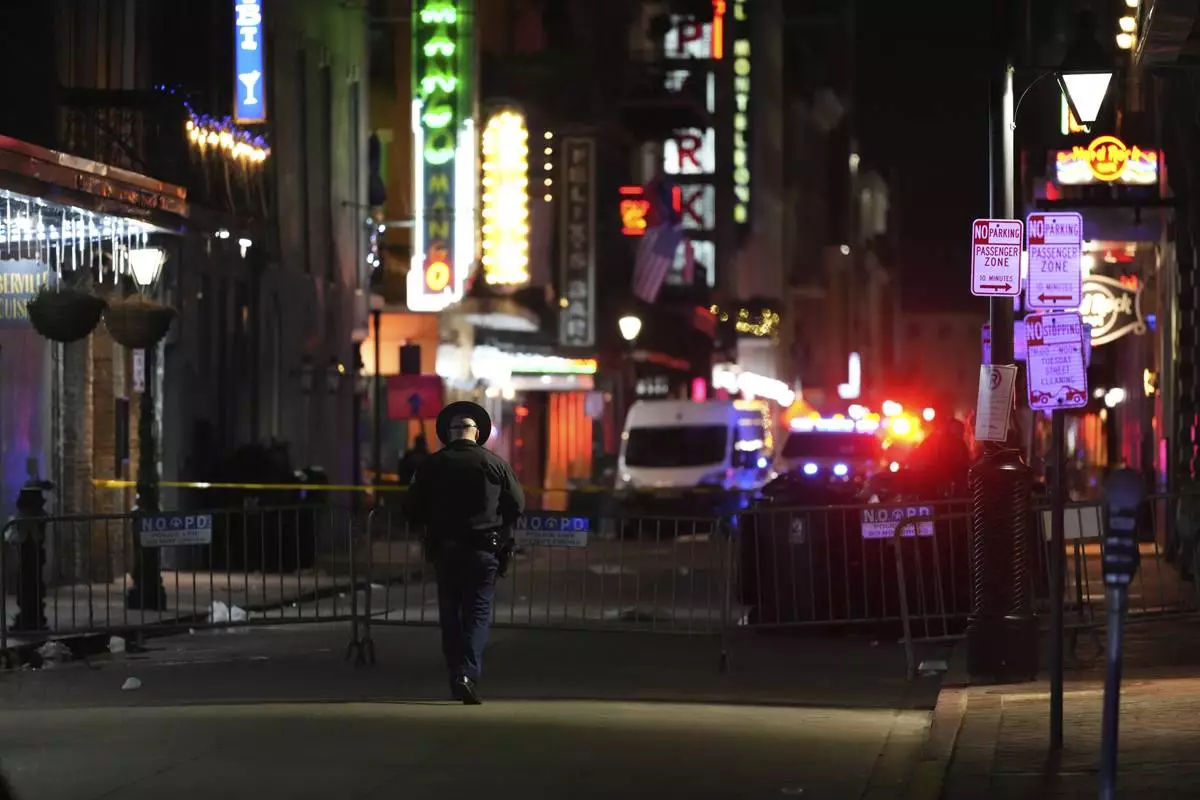
An officer walks along Conti Street after a vehicle drove into a crowd on New Orleans' Canal and Bourbon streets, Wednesday, Jan. 1, 2025. (AP Photo/George Walker IV)
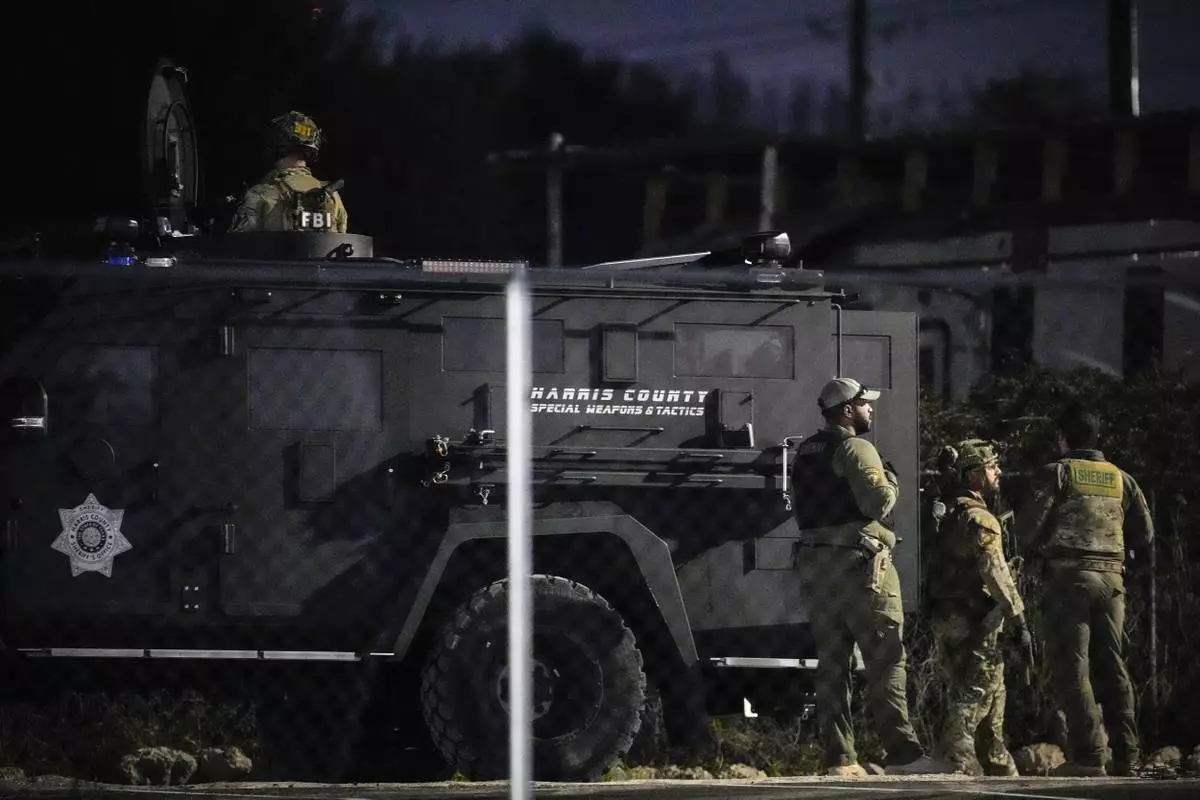
Law enforcement officers stand behind a SWAT vehicle near a location in Houston, Texas, Wednesday, Jan. 1, 2025, where police personnel investigate the place suspected to be associated with an attacker in a deadly rampage in New Orleans. (Brett Coomer/Houston Chronicle via AP)
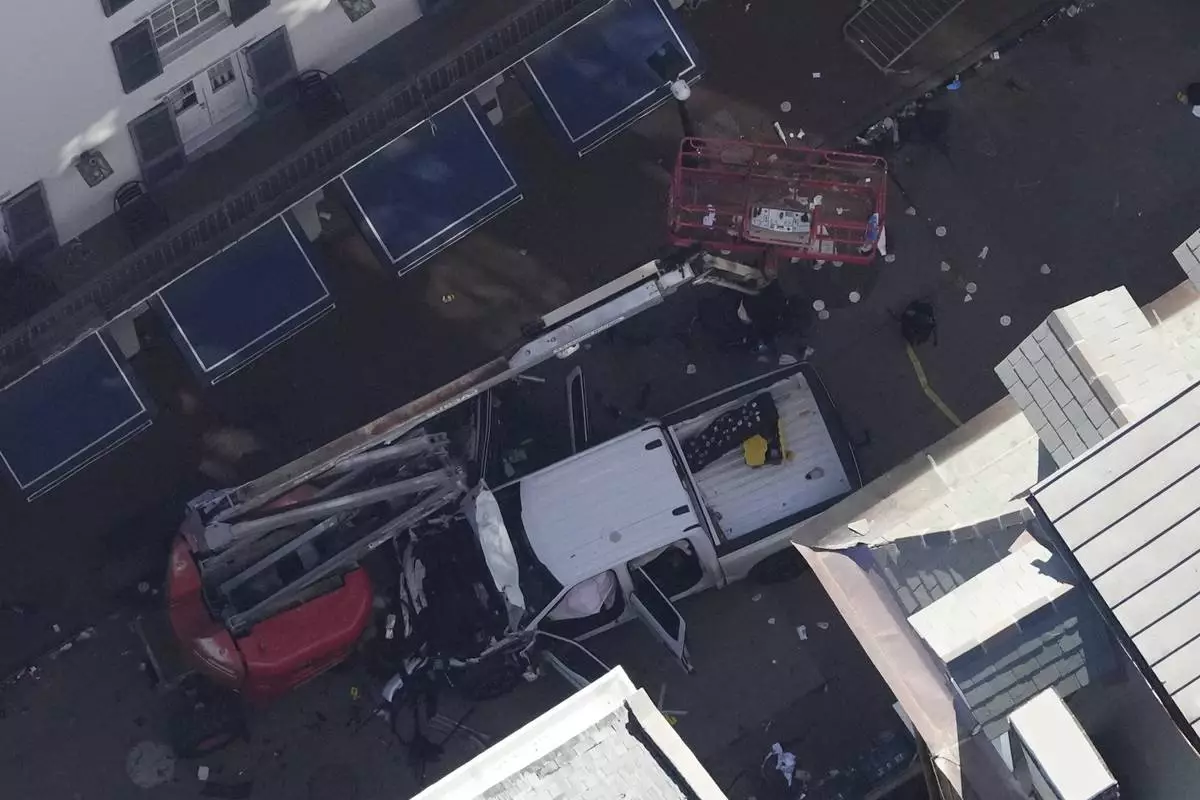
Investigators work the scene after a person drove a vehicle into a crowd earlier on Canal and Bourbon Street in New Orleans, Wednesday, Jan. 1, 2025. (AP Photo/Gerald Herbert)
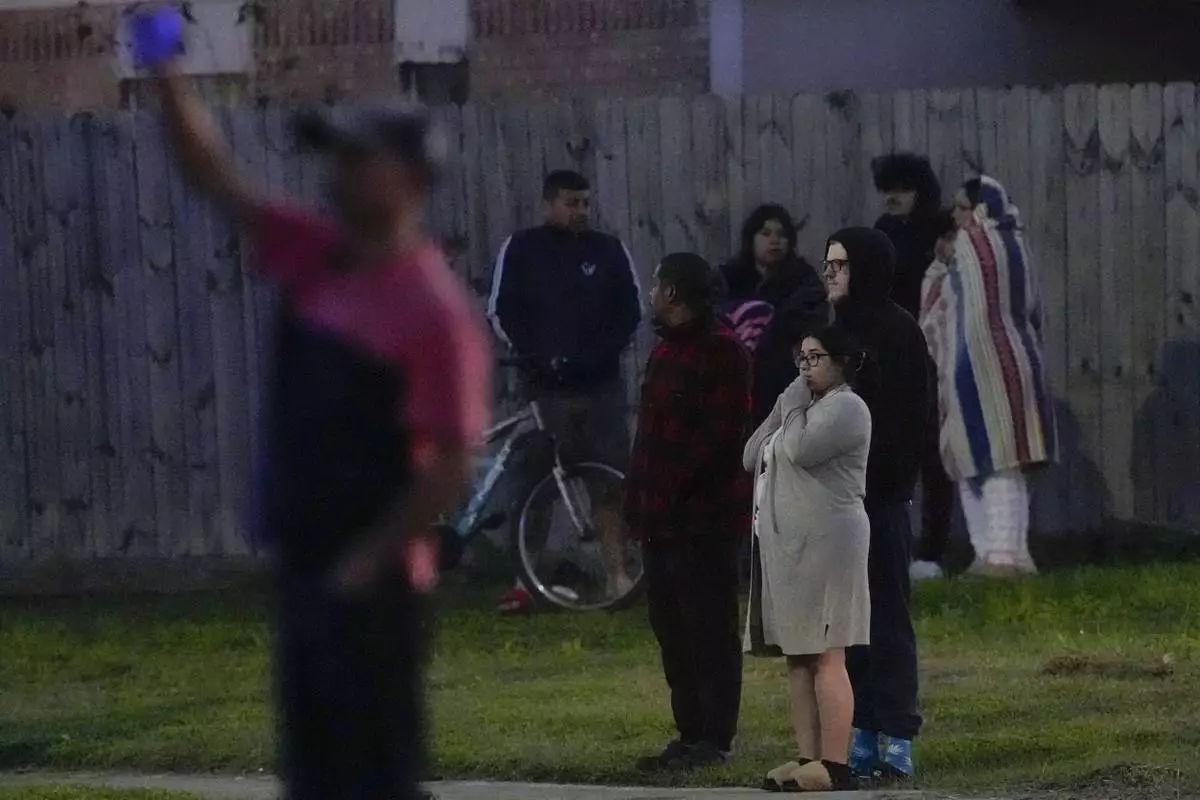
Neighbors stand and watch outside the police lines surrounding a location in Houston, Texas, Wednesday, Jan. 1, 2025, where police personnel investigate the place suspected to be associated with an attacker in a deadly rampage in New Orleans. (Brett Coomer/Houston Chronicle via AP)
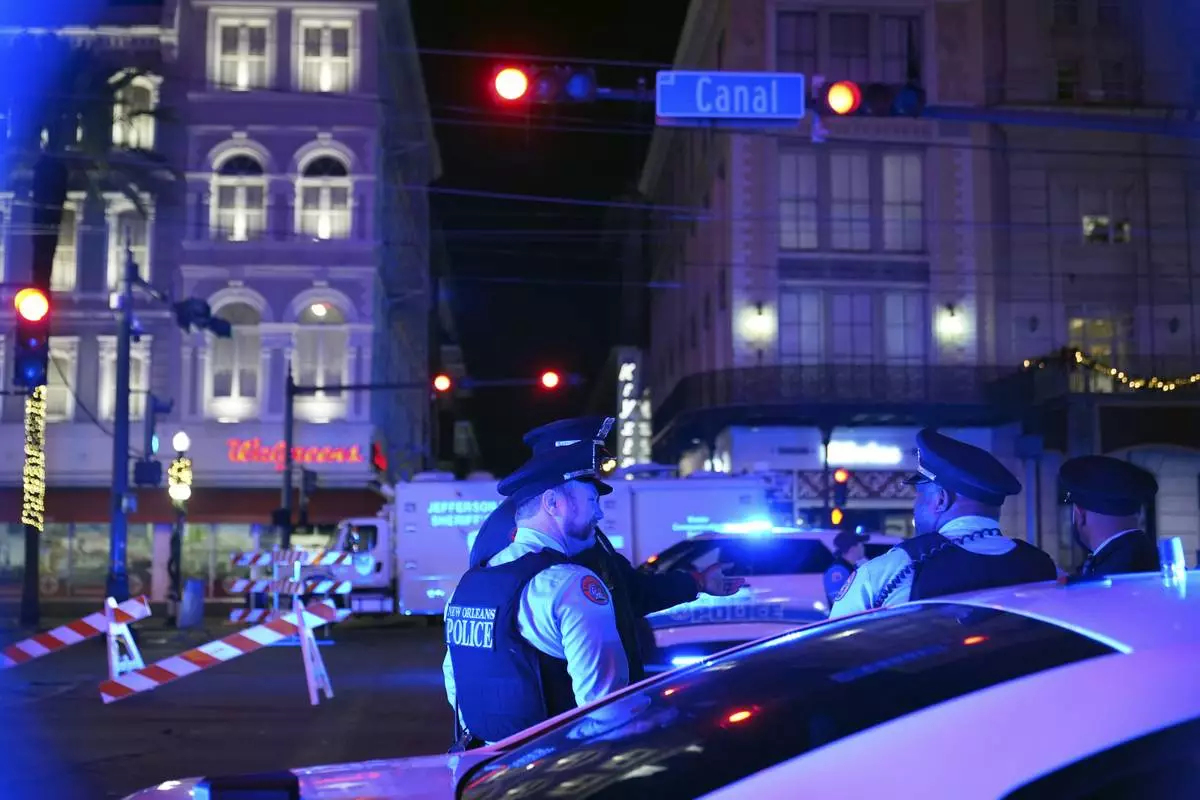
Police officers stand near the scene where a vehicle drove into a crowd on New Orleans' Canal and Bourbon streets, Wednesday, Jan. 1, 2025. (AP Photo/George Walker IV)
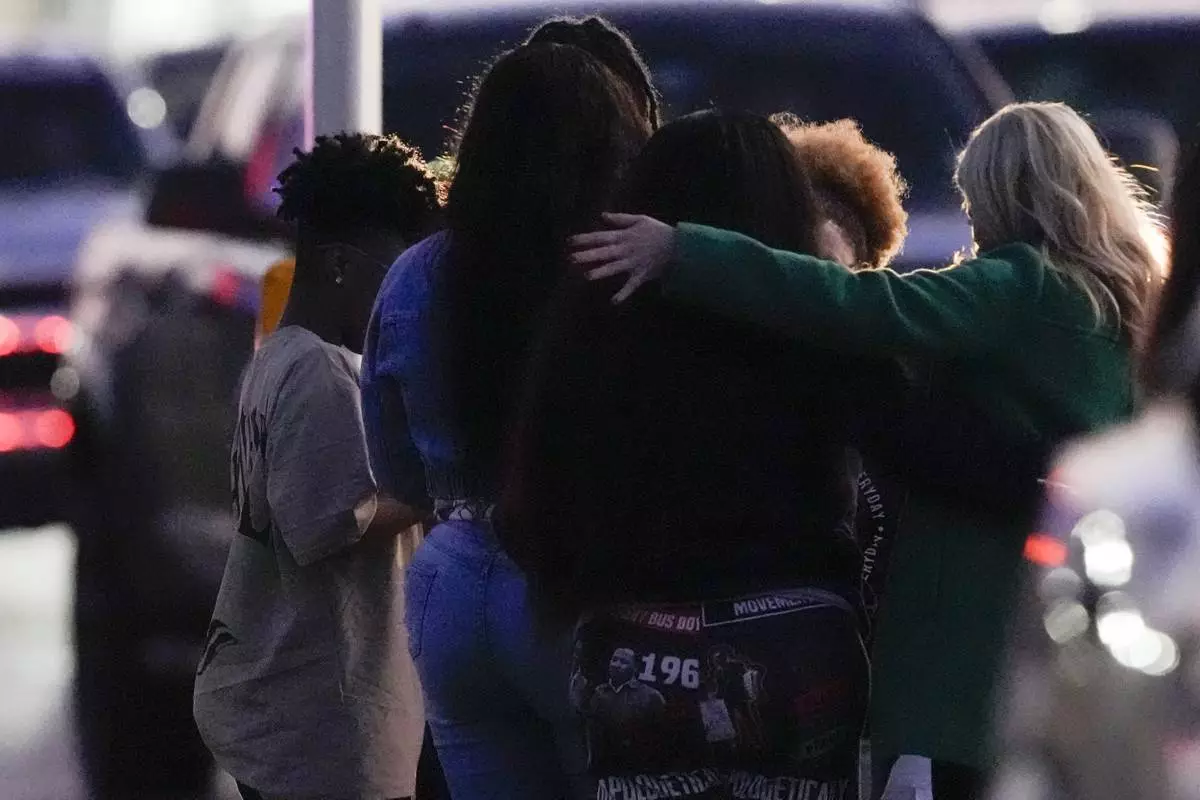
Neighbors embrace as they stand outside the police lines surrounding a location in Houston, Texas, Wednesday, Jan. 1, 2025, where police personnel investigate the place suspected to be associated with an attacker in a deadly rampage in New Orleans. (Brett Coomer/Houston Chronicle via AP)






